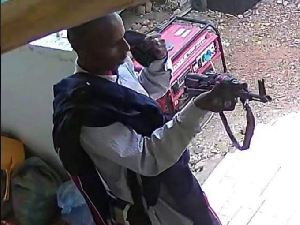Opinions of Wednesday, 10 December 2014
Columnist: Quansah, E. B.
Ghana Health Service Must Be Serious With Chps Compound Implementation
Ghana’s decision to adaption and implement the Community-bases Health Planning and Service (CHPS) by the close of 1999, was greeted with so much joy by many rural folk. The donor community saw that as Ghana’s means of improving access to health care. For the Ministry of Health and the Ghana Health Service it was a major breakthrough and good for rural health care.
Per its Operational Policy, the CHPS compound initiative is an intervention expected to bridge the gap that existed between the Ghana Health Service and communities; in terms of Health care decision making. Before the adaption, the Ministry of Health through the Ghana Health Service tried a Navrongo Community Health and Family Planning Project (CHFP) with the hope of replicating the results across the country. The outcome of CHFP was renamed; Community-based Health Planning and Services (CHPS) and was piloted in Nkwanta, Birim North and Asebu-Abura-Kwamankese.
Under this initiative, Health care services are expected to correspond with the needs of beneficiary communities, hence, the inclusion of Reproductive and Child Health care and counseling for adolescent. These services are also expected to be delivered with a human face approach, which maintains the dignity clients and respects their culture.
Now there are many CHPS compounds across the country to improve access to health care facility and also reduce the distance between communities and big Hospitals. Bringing a health facility closer to rural folks brings them a lot of relief; however, if the facility does not function as expected then the feeling changes.
The above reason prompted me to embark on a three-week monitoring of activities at some CHPS compounds in the Kassaena-Nankana East and West district. With technical support from Media Foundation for West Africa I was able to cover some of the hard to reach areas of the two Kassena-Nankana districts, to check if personnel manning the CHPS compounds there were really working towards the achievement of the initial objective or not.
Before the official implementation of the CHPS compound initiative in the Kassena-Nankana East Municipality in the year 2000 and later in Kassena-Nankana West district, people had to travel long distances for healthcare. There are stories in many rural communities of how families lost their love ones even before reaching a hospital.
48 year old farmer, John Sagpiu, who shared his story with me, said, he wished his community, Manyoro, had a CHPS compound before 2005. “First we go to Navrongo for treatment and people died because they could not walk there, they could not sit on bicycle too.” He said.
According to John Sagpiu, he lost his wife while riding her on a bicycle in the night from Manyoro towards the War memorial Hospital in Navrongo for treatment. (about 18 km interval.) “Some more people died because there was no hospital close to us.” He lamented.
There are stories of others who survived the ordeal, but have been living with various conditions that will “die” with them. John Sagpiu mentioned one Mma Kaweh, as a woman who cannot walk upright since the year 2001. She fell from a bicycle, while she was being taking to the War Memorial Hospital in Navrongo to correct an early pregnancy complication.
MEETING THE CHPS OBJECTIVE
CHPS compound is a means of improving equity in access to basic health services and improve efficiency and responsiveness to clients’ needs. Due political interest, many communities that qualify to have CHPS compounds have them, but the Workers’ responsiveness to clients’ needs and dealing with them with in dignity and with respect is far from being achieved as Nurses continue to divert their anger towards clients. Many Nurses working in rural areas blame the Ghana Health Service for causing them to lose their passion for the work.
“If you don’t have people to speak for you, you will be posted to a faraway community and be forgotten. Many Nurses in rural areas are angry, because, we are cut off from many opportunities, including study leave. Our juniors are doing further studies and yet we cannot. Maybe we don’t have people to talk for us. Let me confess that, many nurses are not working the way they are to work. We don’t feel like killing ourselves for the work.” A nurse said.
INADEQUATE STAFF
CHPS compounds in the Kassena-Nankana West district have inadequate staff, while CHPS compounds in the Kassena-Nankana Municipality have so many. However, CHPS compounds in Kassena-Nankana Municipality are suffering because, despite the many health workers posted there, very little work is done. As a result, communities are not yielding the expected benefit of the CHPS compounds there.
Busongo CHPS compound in the Kassena-Nankana West district serves about 5 communities with a total population of over 1800. At the time of the monitoring, the Busongo CHPS compound had two permanent health workers; a Community Health Nurse, Rahinatu Adams and a Midwife, Beatrice Kambase. They work from morning to evening and in the night, when women are in labour, the two are called to duty at the CHPS compound or homes.
Rahinatu Adams told me that she and her Midwife were doing their best to attend to cases that come to the facility and also run outreach activities to monitor pregnant women and attend to cases in faraway communities.
Community members say when the two health workers are out on outreach programme, the Busongo CHPS Compound will not function until they are back. This situation cuts across CHPS compounds in far communities. Meanwhile, CHPS compounds that are close to the regional and district capitals have more than needed Health workers.
LOGISTICS
CHPS compounds are expected to have a minimum of one motorbike for community visitations and for outreach activities in far communities. Information gathered in the course of the monitoring, revealed that, many CHPS compounds are without official motorbikes. There are no beds in some CHPS compounds and so when pregnant women need to be observed, they are made to lay on benches.
WEEKENDS
Many communities have become used to the fact that, CHPS compounds don’t work on weekends. This is not supposed to be so, especially when provision has been made for Community Health Nurses to stay in the community or close to the CHPS compound.
In the course of the monitoring, it came to light that many CHPS Compounds do not work on weekends and so families have to carry their sick ones over distances varying from 9 to 20km to seek medical attention at the Navrongo War Memorial Hospital, because, nurses at the CHPS compounds abandon their post for social and academic purpose in the bigger communities.
I learnt that GHS in the Upper East region is very much aware of this and yet seem not to be interested in ensuring that the initial objective of the CHPS compound is met.
Nurses that are posted to far communities are mostly cut off from many social activities and that is the reason why many Nurses will do everything possible to dodge a posting to a far community. Many nurses in faraway CHPS compounds are frustrated, and are working without passion, hence, the frequent reports of abuses and quarrels with clients. (Patients)
WAY FORWARD
Communities must be made to feel part of the CHPS compound management and be sensitized to encourage their children to choose Nursing as a career and should return to work in their communities.
Granting study leave to Health workers should not be at the wish of someone, but based on qualification in terms of working years or the need to fill a position. This way, people will accept to work hard anywhere and will not be frustrated.
District Assemblies should also fast track the extension of electricity power to CHPS compound to aid the comfort of health workers there.
END














